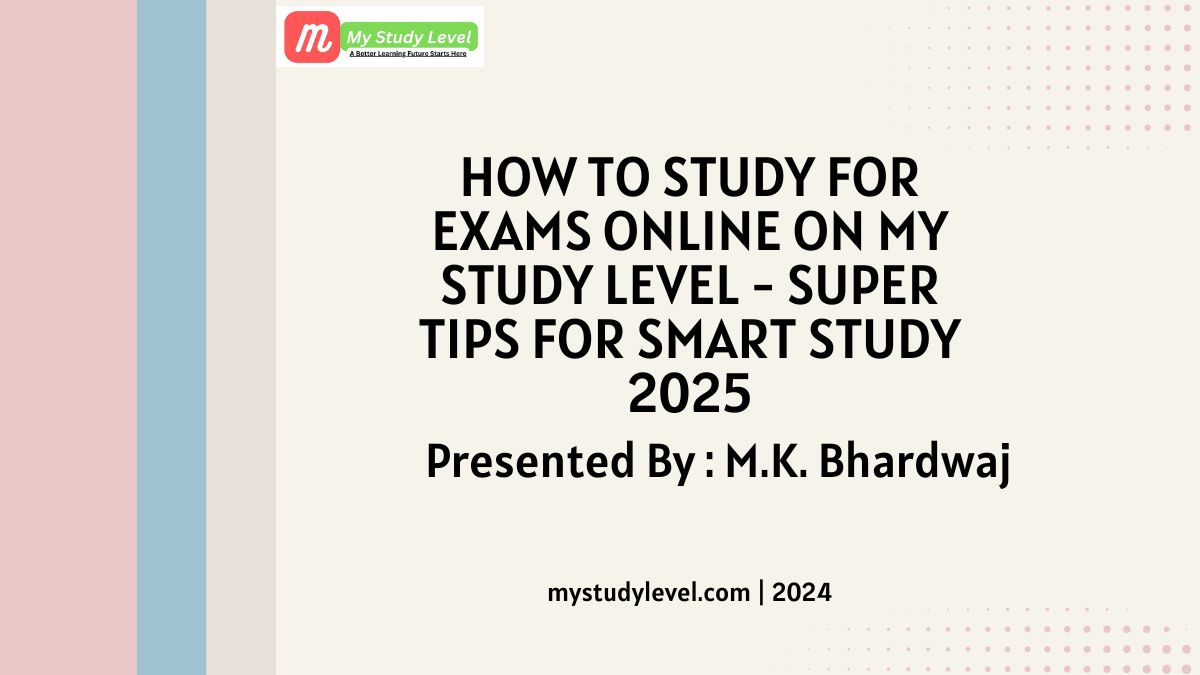Pursuing a PhD in Finance after MBA can be a great choice if you’re interested in research, academia, or high-level analytical roles in finance. Here’s what you need to know:
1. Why Pursue a PhD in Finance After an MBA?
- Academia & Teaching – If you aspire to become a professor or researcher at a university.
- Advanced Research – Specialize in financial economics, asset pricing, risk management, etc.
- Higher-Level Corporate Roles – Some research-heavy positions (e.g., in central banks, investment research, or quantitative finance) prefer PhDs.
phd in finance after mba
2. Eligibility & Requirements
- Strong academic background (MBA with high GPA, especially in quantitative subjects).
- Research experience (a thesis or publications help).
- Strong math, statistics, and econometrics skills.
- Good GMAT/GRE scores (top programs may require above 90th percentile).
- Statement of Purpose (SOP) and Letters of Recommendation (LORs).
3. Duration & Structure
- Typically 4-6 years.
- First 2 years: Coursework (econometrics, financial modeling, macro/microeconomics).
- Remaining years: Dissertation research.
4. Top Universities for a PhD in Finance
- USA: Harvard, MIT Sloan, Stanford, Wharton, Chicago Booth, NYU Stern.
- Europe: London Business School, INSEAD, HEC Paris, Oxford, Cambridge.
- Asia: NUS, HKUST, IIMs (India).
5. Career Opportunities After a PhD in Finance
- Academia – Professor or researcher.
- Finance Industry – Hedge funds, investment banking, private equity, risk management.
- Policy & Research – Central banks (e.g., Federal Reserve, RBI), IMF, World Bank.
- Consulting – McKinsey, BCG, Bain, and niche financial consulting firms.
Would you like help shortlisting universities or preparing for applications?
PhD in Finance: A Complete Guide
A PhD in Finance is a rigorous, research-intensive program designed for individuals interested in academic research, quantitative finance, and high-level analytical roles. It is ideal for those aiming to become professors, researchers, or financial experts in policy-making institutions.
1. Why Pursue a PhD in Finance?
A PhD in Finance can lead to careers in:
✅ Academia – Become a professor or researcher at top universities.
✅ Financial Research – Work at central banks (Federal Reserve, RBI, ECB), IMF, or World Bank.
✅ Quantitative Finance – Hedge funds, asset management, risk analysis.
✅ Consulting & Strategy – McKinsey, BCG, Bain, or financial policy advisory.
phd in finance after mba
2. Admission Requirements
Most top programs require:
📌 Educational Background: A strong foundation in finance, economics, mathematics, or statistics (MBA, MSc, or BBA with high GPA).
📌 Test Scores: High GMAT/GRE scores (90th percentile+ preferred).
📌 Research Interest: Prior research experience or publications add value.
📌 Letters of Recommendation: Typically, 2-3 strong LORs from professors.
📌 Statement of Purpose (SOP): A well-written SOP outlining research interests.
📌 Mathematical & Statistical Skills: Knowledge of econometrics, financial modeling, and programming (Python, R, MATLAB) is an advantage.
3. Course Structure & Duration
A PhD in Finance usually takes 4-6 years, divided into:
📚 Years 1-2: Coursework
- Micro & Macroeconomics
- Asset Pricing & Corporate Finance
- Econometrics & Data Science
- Financial Derivatives & Risk Management
📝 Years 3-5: Research & Dissertation
- Conduct independent research
- Publish papers in top journals (e.g., Journal of Finance, Review of Financial Studies)
- Defend dissertation
4. Top Universities for PhD in Finance
United States
🏆 Harvard Business School
🏆 MIT Sloan
🏆 Stanford GSB
🏆 University of Chicago Booth
🏆 Wharton (UPenn)
Europe
🇬🇧 London Business School
🇬🇧 University of Oxford
🇫🇷 INSEAD
🇫🇷 HEC Paris
Asia
🇸🇬 National University of Singapore (NUS)
🇭🇰 Hong Kong University of Science and Technology (HKUST)
🇮🇳 Indian Institute of Management (IIMs)
phd in finance after mba
5. Career Opportunities After a PhD in Finance
💼 Academia – Become a professor at top business schools.
📈 Investment & Asset Management – Quantitative finance, hedge funds, private equity.
🏛 Government & Policy – Work with central banks, IMF, World Bank.
📊 Risk Management & Banking – JPMorgan, Goldman Sachs, BlackRock.
6. Is a PhD in Finance Worth It?
✅ If you love research & teaching – YES!
✅ If you want a high-paying quant or policy role – YES!
❌ If you want to enter corporate finance quickly – NO (an MBA is better).
Would you like help shortlisting universities or preparing for applications? 😊
Procedure to Get Admission in PHD After MBA
Procedure to Get Admission in a PhD in Finance
Getting into a PhD in Finance is highly competitive, especially at top universities. Here’s a step-by-step guide to the application process:
1. Research & Shortlist Universities (6-12 Months Before Application Deadline)
- Identify universities based on faculty expertise, research output, and ranking.
- Check program requirements and deadlines (usually between October – January for Fall intake).
- Look at faculty research areas to find a match for your interests.
✅ Tip: Visit department websites, read research papers, and attend webinars.

phd in finance after mba
2. Prepare for Entrance Exams (6-12 Months Before Application)
Most programs require:
- GRE/GMAT (90th+ percentile preferred for top universities)
- TOEFL/IELTS (for non-native English speakers)
✅ Tip: Some universities accept GRE in place of GMAT for finance PhD programs.
3. Build a Strong Research Profile (6-12 Months Before Application)
- Develop expertise in mathematics, statistics, and econometrics.
- Work on research projects or publish papers in finance/economics journals.
- If possible, assist a professor in research work.
✅ Tip: Having prior research experience increases your chances of admission.
4. Gather Required Documents (3-6 Months Before Application Deadline)
🔹 Academic Transcripts (Bachelor’s & Master’s degrees)
🔹 Statement of Purpose (SOP) – Clearly state your research interests & goals.
🔹 Letters of Recommendation (LORs) – Usually 2-3 from professors.
🔹 CV/Resume – Highlight research experience, projects, and technical skills.
🔹 Writing Sample (if required) – A research paper, thesis, or essay.
✅ Tip: Get LORs from professors who know your research abilities well.
5. Submit Application (Before Deadline)
- Apply online through university portals.
- Pay application fees (varies by university).
- Double-check requirements and deadlines.
✅ Tip: Apply to multiple universities (5-10) to improve chances.
6. Interview Process (If Shortlisted)
- Some universities conduct interviews (via Zoom/Skype) to assess:
🔹 Research potential
🔹 Mathematical & analytical skills
🔹 Fit with faculty interests
✅ Tip: Read faculty papers before the interview and prepare research-related questions.
7. Receive Admission Decision (March – May)
- If accepted, you may get a funding offer (scholarships, stipends, or research assistantship).
- Choose the best university based on faculty, research opportunities, and funding.
✅ Tip: Many top programs fully fund PhD students, covering tuition + stipend.
Timeline Summary
📅 12 Months Before – Research universities, faculty, and research areas.
📅 6-12 Months Before – Prepare for GMAT/GRE, TOEFL/IELTS.
📅 3-6 Months Before – Write SOP, collect LORs, polish CV, and submit applications.
📅 After Submission – Attend interviews (if required) and wait for results.
Final Thoughts
PhD admissions are highly competitive. Focus on:
✅ Strong research background (published papers are a bonus).
✅ High GRE/GMAT scores (especially in quantitative sections).
✅ Clear research interests that align with faculty expertise.
Would you like help shortlisting universities or reviewing your SOP? 😊
Sallery after PHD Candidate after MBA in USA
Salary After PhD in Finance (Post-MBA)
The salary after a PhD in Finance (especially after an MBA) varies based on career choice, industry, and location. Below are typical salary expectations:
1. Academic Career (Professor / Researcher)
- Assistant Professor (Entry-Level, Business School): $120,000 – $180,000 per year
- Associate Professor (After ~5 Years): $150,000 – $250,000 per year
- Full Professor (After ~10 Years): $200,000 – $500,000+ per year
🔹 Top Business Schools Pay More (Harvard, MIT, Wharton, Stanford, etc.).
🔹 Professors can earn extra income from consulting, research grants, and executive training.
2. Finance Industry (Post-PhD Roles)
A PhD in Finance is highly valued in quantitative finance, investment banking, and hedge funds.
a) Quantitative Finance / Hedge Funds
💰 Salary: $150,000 – $400,000+ per year (base)
💰 Bonus: Can go up to $500,000 – $1M+ in top firms
🔹 Job Roles:
- Quantitative Researcher / Analyst
- Algorithmic Trader
- Risk Management Specialist
- Financial Engineer
🔹 Top Firms Hiring:
- Citadel, Renaissance Technologies, Two Sigma, DE Shaw, Goldman Sachs, JPMorgan
b) Investment Banking & Private Equity
💰 Salary: $180,000 – $350,000 (base)
💰 Bonuses: Performance-based (can be 100%+ of base salary)
🔹 Top Employers:
- Goldman Sachs, Morgan Stanley, BlackRock, KKR, Bain Capital
c) Central Banks & Policy Research (IMF, World Bank, Federal Reserve, RBI, ECB)
💰 Salary: $120,000 – $250,000 per year
🔹 Higher salaries at senior levels (Chief Economist roles can exceed $500,000).
3. Consulting & Corporate Strategy (McKinsey, BCG, Bain, Big 4)
💰 Salary: $150,000 – $300,000 per year (base)
💰 Bonuses: Performance-based (~$50,000 – $150,000 extra)
🔹 PhDs are hired for:
- Economic/Financial Modeling
- Risk Advisory
- Mergers & Acquisitions (M&A)
Summary: Salary Ranges After a PhD in Finance (Post-MBA)
| Career Path | Salary Range (Base) | Bonus / Extra Earnings |
|---|---|---|
| Assistant Professor (Business School) | $120K – $180K | Consulting & Research Grants |
| Quant Finance / Hedge Funds | $150K – $400K | Up to $1M+ Bonus |
| Investment Banking / Private Equity | $180K – $350K | 100%+ Performance Bonus |
| Central Banks / IMF / World Bank | $120K – $250K | Growth to $500K+ |
| Consulting (McKinsey, BCG, Bain) | $150K – $300K | $50K – $150K+ Bonus |
Would you like help in deciding the best career path after a PhD? 😊
Sallery after PHD Candidate after MBA in India
The salary of a PhD candidate after an MBA in India depends on various factors, including the field of study, industry, institute, experience, and job role. Here’s a general breakdown:
1. Academic Roles (Teaching & Research)
- Assistant Professor (After PhD)
- ₹8–15 LPA (in top universities like IIMs, IITs, and ISB)
- ₹5–10 LPA (in private colleges and universities)
- Postdoctoral Researcher
- ₹6–12 LPA (varies based on the funding and institute)
- Research Associate/Fellow
- ₹4–9 LPA
2. Corporate & Industry Roles
- Management Consultant (Top firms like McKinsey, BCG, Bain)
- ₹25–50 LPA
- Data Scientist/Analyst (If PhD is in quantitative fields like AI, finance, or analytics)
- ₹15–30 LPA
- R&D Manager (Pharma, Tech, or Manufacturing)
- ₹12–25 LPA
- Policy Analyst (Government, Think Tanks, NGOs)
- ₹10–20 LPA
3. Entrepreneurship & Startups
- If you start your own venture, earnings vary widely but can be substantial depending on success.
4. Government & Public Sector
- NITI Aayog, RBI, DRDO, ISRO, etc.
- ₹12–25 LPA
Salaries tend to be higher in corporate roles compared to academia. If you aim for top consulting, analytics, or R&D roles, a PhD after an MBA can be a strong advantage. However, if your goal is teaching or research, the salary might start lower but has steady growth.
Would you like insights on specific industries?
Colleges of PHD Course in India
There are several prestigious institutes in India offering PhD programs across various disciplines, including management, engineering, science, humanities, and social sciences. Here are some of the top colleges/universities for PhD courses in India:
1. PhD in Management (After MBA)
- Indian Institutes of Management (IIMs)
- IIM Ahmedabad, IIM Bangalore, IIM Calcutta, IIM Lucknow, IIM Indore, etc.
- Offers: Doctoral Programme in Management (DPM) / Fellow Programme in Management (FPM)
- Eligibility: MBA/PGDM or equivalent, CAT/GRE/GMAT/UGC-NET
- Indian School of Business (ISB Hyderabad & Mohali)
- PhD in Management
- Eligibility: GMAT/GRE/CAT/GATE/JRF
- Xavier School of Management (XLRI), Jamshedpur
- Fellow Programme in Management (FPM)
- Eligibility: CAT/GMAT/GRE/XAT score
- SP Jain Institute of Management and Research (SPJIMR), Mumbai
- Fellow Programme in Management (FPM)
- Eligibility: MBA/Master’s + CAT/GMAT/GRE/XAT score

2. PhD in Engineering & Technology
- Indian Institutes of Technology (IITs)
- IIT Bombay, IIT Delhi, IIT Madras, IIT Kanpur, IIT Kharagpur, etc.
- Various PhD specializations in engineering, AI, data science, etc.
- National Institutes of Technology (NITs)
- NIT Trichy, NIT Warangal, NIT Surathkal, etc.
- Indian Institute of Science (IISc), Bangalore
- PhD in Science, Engineering, and Management
3. PhD in Science & Humanities
- Jawaharlal Nehru University (JNU), Delhi
- Specializations: Social Sciences, Economics, Political Science, etc.
- Tata Institute of Social Sciences (TISS), Mumbai
- Specializations: Public Policy, Development Studies, Social Work
- University of Delhi (DU)
- Various PhD courses in Arts, Science, and Commerce
- Banaras Hindu University (BHU)
- Specializations in Science, Arts, Medicine, Management
- Jamia Millia Islamia (JMI), Delhi
- Various PhD specializations
4. PhD in Medical & Pharmaceutical Sciences
- All India Institute of Medical Sciences (AIIMS), New Delhi & Other AIIMS Branches
- Postgraduate Institute of Medical Education & Research (PGIMER), Chandigarh
- National Institute of Pharmaceutical Education and Research (NIPER), Mohali & Hyderabad
5. PhD in Law
- National Law School of India University (NLSIU), Bangalore
- NALSAR University of Law, Hyderabad
- The West Bengal National University of Juridical Sciences (WBNUJS), Kolkata
Admission Process
- Entrance Exams: UGC-NET, GATE, CAT, GMAT, GRE, JRF, or institute-specific tests.
- Interview & Research Proposal: Many universities require a strong research proposal and an interview round.
Would you like recommendations based on a specific subject or field?

















Leave a Reply